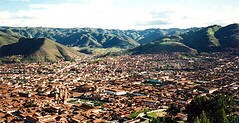Human Variation and Race Blog
1. High altitude.
2. Four ways humans have adapted to high altitude:
- being born or growing up in a place where there is high altitude
- exercising in levels of high altitude and also maintaining a healthy lifestyle definitely helps out with adapting.
- developing a strong heart and strong lungs are important in places with high altitudes.
- visiting places with high altitudes prepares physically and mentally.
3. The benefit of studying human variation from this perspective across environmental clines is that we obtain more information based on evidence that can back up our theories as oppose to other opinions. Yes, this information helps understand what exactly causes these stresses so problems can be prevented.
4. I think race could have some input in what I listed on #2 but only up to a certain point. Every race is different which mean how and if they adapt is also different. Environmental influences however could provide a better explanation of the affects of the environments humans live in than the races of humans.





3 Comments:
There is quite a bit missing from this post that was requested in the guidelines.
The first section asked for an explanation as to how this stress negatively impact homeostasis in the human body, beyond just identifying your chosen stress.
The second section asked you to choose four specific adaptations to your chosen stress: one short term, one facultative, one developmental and one cultural. You have four recommendations but none that actually satisfy the guideline requirements. Please take some time to review the guidelines and read a few other student posts to see what you are missing.
I agree that the adaptive approach is an empirical way to understand human variation. We aren't really looking for a cause of the stresses (high altitude stress is due to... high altitude) but we are trying to understand why humans vary from population to populations, and looking at how they vary across clines is an objective, scientific approach.
Not only is every race different, different cultures have different definitions of race. That is one of the problems... race is a subjective system of classifying humans, and it carries with it the biases and beliefs of each culture. There is also no causal relationship between race and human variation, so it cannot be used to explain it. Those are two good reasons why race can not be used as a basis for objectively understanding human variation.
I would have liked to see a bit more on your four adaptations. I chose to chose uv radiation for my topic and found very interesting information about both UVA and UVB rays. High altitude adaptations from what you stated sounds interesting as well
I chose High Altitude as my adaptation stress as well... I would have liked to glean some more information in regards to the pros and cons of high altitude living as I am personally planning on moving to the Northern Midwest in a locale of high altitude, and it would have been great to see more answers about how it helps vs. how it doesn't.
Post a Comment
Subscribe to Post Comments [Atom]
<< Home